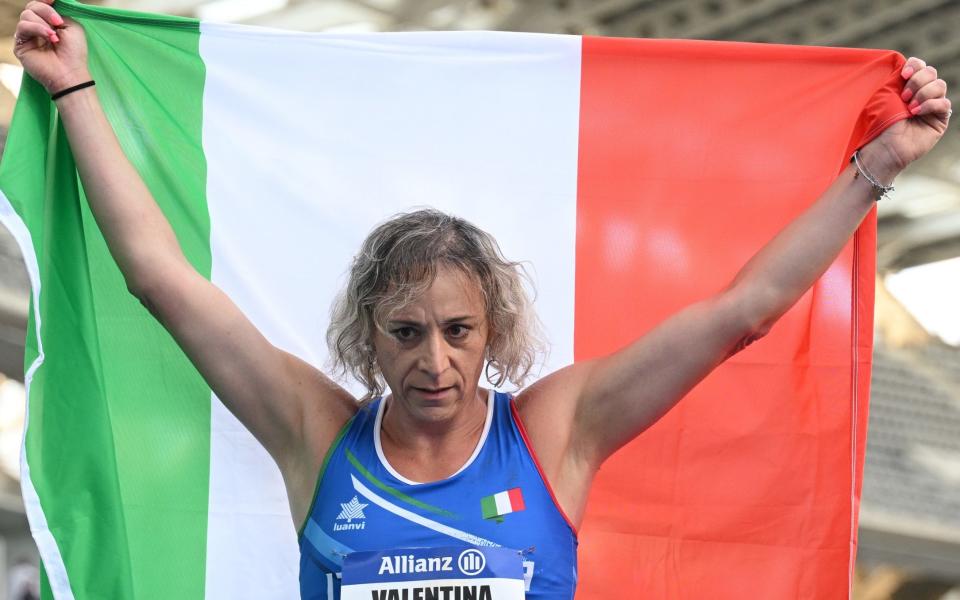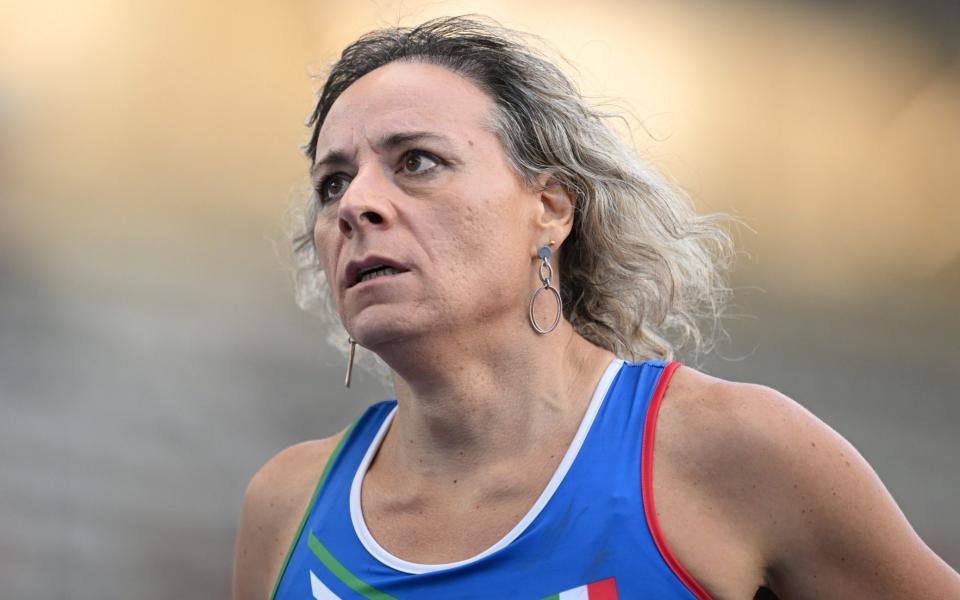A rival of the Paralympics’ first openly transgender runner has spoken out over her opponent’s potential “advantage”.
Katrin Mueller-Rottgardt sounded the alarm over the participation of Valentina Petrillo, who she will face in races for the visually impaired at Paris 2024.
The inclusion in the female category of the Italian, who won bronze in both the women’s T12 200 metres and 400m at last year’s World Para Athletics Championships, has sparked sport’s latest gender row.
The 50-year-old transitioned in 2019 after undergoing hormone therapy, having previously won 11 national titles in three years while competing as a man.
Mueller-Rottgardt told Bild: “Basically, everyone should live in everyday life the way they feel comfortable. But I find it difficult in competitive sports.
“She has lived and trained as a man for a long time, so there is a possibility that the physical requirements are different to those of someone who was born a woman. This could give her an advantage.”
Speaking after competing against Petrillo in a recent race, the German added: “For me, that [Petrillo’s gender] wasn’t a focus because it didn’t affect me. I didn’t even notice it because I couldn’t see her.
“It was only after the race that people started talking about how masculine she looked. I can’t judge that.”
Mueller-Rottgardt spoke out after Petrillo was selected to represent Italy at the Paralympics in the women’s T12 200m and 400m.
In a statement last week responding to her selection, Petrillo said: “I still find it hard to believe it and I’m keeping my feet on the ground because my chance to participate in Tokyo was missed by a whisker.
“I will only start thinking about the Paris Games once I arrive in France.”


Ahead of running in the T12 200m and 400m, the sprinter told BBC Sport her participation at the Games was an “important symbol of inclusion”.
Diagnosed with Stargardt’s disease at the age of 14, Petrillo’s visual abilities are limited to 1/50th of the normal range.
Fairness-for-sport campaigners have previously raised concerns about Petrillo’s participation in female sport.
Mariuccia Quilleri, a lawyer and athlete who has represented a number of competitors who oppose Petrillo’s participation, said inclusion had been chosen over fairness and “there is not much more we can do”.
What are the regulations for the Paralympics?
Like the International Olympic Committee (IOC), the International Paralympic Committee (IPC) effectively allows individual sporting bodies to decide their own guidelines on categories for women’s sport.
Last year, World Athletics banned transgender women from competing in the female category at international events such as the Olympics.
However, under World Para Athletics’ rules, an athlete who is legally recognised as a woman is eligible to compete in the category for which their impairment qualifies them.
Andrew Parsons, president of the International Paralympic Committee (IPC), told the BBC that Petrillo was “welcome” in Paris under current World Para Athletics rules.
Currently, there is no unified position in sport towards transgender inclusion and, like the IOC, the IPC allows international governing bodies to set their own policies.
The governing bodies of many sports including athletics, cycling and swimming have tightened their participation rules for transgender athletes in elite women’s competitions over the last couple of years.
Critics of transgender inclusion in women’s sport say going through male puberty imbues athletes with a huge musculoskeletal advantage that transition does not mitigate.
LGBT advocacy groups say excluding trans athletes amounts to discrimination and that not enough research has been done into the impact of transition on athletic performance.
The 2024 Paris Paralympics run from Wednesday, August 28 to Sunday, September 8.
Broaden your horizons with award-winning British journalism. Try The Telegraph free for 3 months with unlimited access to our award-winning website, exclusive app, money-saving offers and more.






